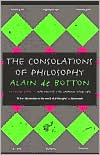Category Books
- Fiction Books & Literature
- Graphic Novels
- Horror
- Mystery & Crime
- Poetry
- Romance Books
- Science Fiction & Fantasy
- Thrillers
- Westerns
- Ages 0-2
- Ages 3-5
- Ages 6-8
- Ages 9-12
- Teens
- Children's Books
- African Americans
- Antiques & Collectibles
- Art, Architecture & Photography
- Bibles & Bible Studies
- Biography
- Business Books
- Christianity
- Computer Books & Technology Books
- Cookbooks, Food & Wine
- Crafts & Hobbies Books
- Education & Teaching
- Engineering
- Entertainment
- Foreign Languages
- Game Books
- Gay & Lesbian
- Health Books, Diet & Fitness Books
- History
- Home & Garden
- Humor Books
- Judaism & Judaica
- Law
- Medical Books
- New Age & Spirituality
- Nonfiction
- Parenting & Family
- Pets
- Philosophy
- Political Books & Current Events Books
- Psychology & Psychotherapy
- Reference
- Religion Books
- Science & Nature
- Self Improvement
- Sex & Relationships
- Social Sciences
- Sports & Adventure
- Study Guides & Test Prep
- Travel
- True Crime
- Weddings
- Women's Studies
The Consolations of Philosophy » (~)

Authors: Alain de Botton
ISBN-13: 9780679779179, ISBN-10: 0679779175
Format: Paperback
Publisher: Knopf Doubleday Publishing Group
Date Published: April 2001
Edition: ~
Author Biography: Alain de Botton
Alain de Botton is the author of On Love, The Romantic Movement, Kiss and Tell, and How Proust Can Change Your Life (available in paperback from Vintage Books). His work has been translated into twenty languages. He lives in Washington, D.C., and London, where he is a director of the Graduate Philosophy Program at London University.
Book Synopsis
From the internationally heralded author of How Proust Can Change Your Life comes this remarkable new book that presents the wisdom of some of the greatest thinkers of the ages as advice for our day to day struggles.
Solace for the broken heart can be found in the words of Schopenhauer. The ancient Greek Epicurus has the wisest, and most affordable, solution to cash flow problems. A remedy for impotence lies in Montaigne. Seneca offers advice upon losing a job. And Nietzsche has shrewd counsel for everything from loneliness to illness. The Consolations of Philosophy is a book as accessibly erudite as it is useful and entertaining.
Publishers Weekly
Three years ago, de Botton offered a delightful encounter with a writer many find unapproachable, in his bestselling How Proust Can Change Your Life. Now he attempts a similar undertaking--not wholly successful--with the great philosophers. In clear, witty prose, de Botton (who directs the graduate philosophy program at London University) sets some of their ideas to the mundane task of helping readers with their personal problems. Consolation for those feeling unpopular is found in the trial and death of Socrates; for those lacking money, in Epicurus' vision of what is essential for happiness. Senecan stoicism assists us in enduring frustration; Schopenhauer, of all people, mends broken hearts (by showing that "happiness was never part of the plan"); and Nietzsche encourages us to embrace difficulties. Black-and-white illustrations cleverly (sometimes too cleverly) accent the text: a "Bacardi and friends" ad, for example, illustrates the Epicurean doctrine of confused needs. Self-deprecating confessions pepper the book, a succinct account of an episode of impotence being the most daring. The quietly ironic style and eclectic approach will gratify many postmodern readers. But since the philosophers' opinions often cancel each other out (Montaigne undermines Seneca's trust in rational self-mastery, and Nietzsche repudiates "virtually all" that Schopenhauer taught), readers will need to pick and choose whose cogitations to take to heart. At his best (e.g., on Socrates), de Botton offers lucid popularization--an enjoyable read with "a few consoling and practical things" to say. (Apr.) Copyright 2000 Cahners Business Information.|
Table of Contents
Subjects
 Philosophy
Philosophy  General & Miscellaneous Philosophy
General & Miscellaneous PhilosophyNonfiction
 Psychology
Psychology  Clinical Psychology
Clinical PsychologyPhilosophy
 General & Miscellaneous Philosophy
General & Miscellaneous Philosophy  General & Miscellaneous
General & MiscellaneousPsychology & Psychotherapy
 Clinical Psychology
Clinical Psychology  Counseling - General & Miscellaneous
Counseling - General & MiscellaneousPsychology & Psychotherapy
 Psychological Disorders
Psychological Disorders  Counseling - General & Miscellaneous
Counseling - General & MiscellaneousMedical Books
 Psychology & Psychotherapy
Psychology & Psychotherapy  Clinical Psychology
Clinical PsychologyMedical Books
 Psychology & Psychotherapy
Psychology & Psychotherapy  Psychological Disorders
Psychological Disorders
